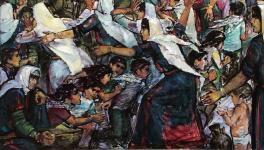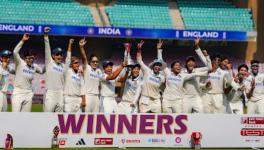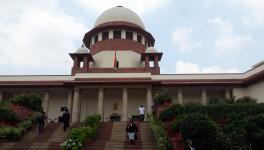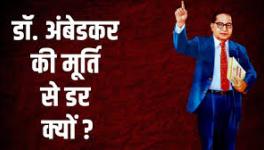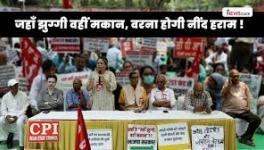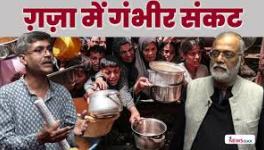The Indian Premier League: A Monster That Threatens To Consume Its Maker, And Cricket Itself | Outside Edge
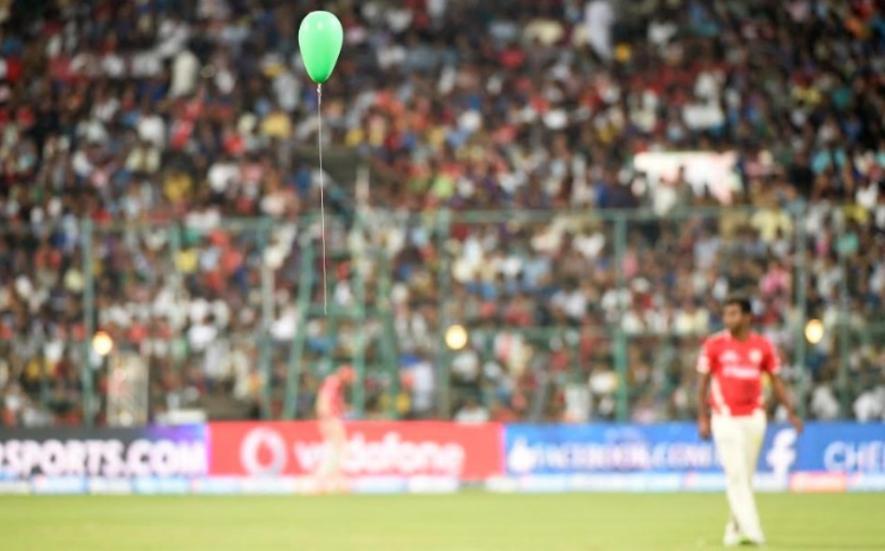
In 12 years, the Indian Premier League (IPL), from nonexistence, has become so big that it is threatening to gulp down the tournament that birthed it — the ICC World T20 (Pics: Vaibhav Raghunandan).
The world is connected in more intricate ways than we can imagine. An incident in one corner, seemingly inconsequential to everything else, is not necessarily as initially perceived. This notion — call it the karmic cycle or the butterfly effect — has been made glaringly visible by a virus.
Of course, caught up in the novel everyday struggle of keeping oneself safe as well as earning your daily bread, we tend to forget this larger knowledge the pandemic provides. The consequences of our actions or inactions — hasty lockdowns bettered by hastier unlocking in India — may come back to haunt us. And this will be sooner than we can imagine. The impact of incidents man made or otherwise — from the disastrous exodus of essential workers, selective denial of healthcare in the national capital, to cyclone Amphan on the east coast — will get marked and absorbed into history. And they will invariably come back at us with meaner intentions and implications. Cause and effect cycle is as old as the earth itself.
Look at how cricket is trying hard to deal with the monster it unleashed onto itself more than a decade back. The game’s highest (on paper at least) decision maker — the International Cricket Council (ICC) — is unable to make decisions based on objectivity. Forget decisions, it is unable to even hold a virtual conference without disruption. Leaked emails, mudslinging and veiled threats from bullies take over proceedings. Needless to say, there is no bigger bully in the game than the Indian cricket board.
Also Read | Vasant Raiji, World’s Oldest First-Class Cricketer, Dies at 100
There isn’t much happening as far as actual cricket is concerned. But the game is still on at the boardroom level — the bone of contention being the biggest money spinner for the Board of Control for Cricket in India (BCCI).
The Indian Premier League (IPL) is, so far, the biggest sporting casualty of the Covid-19 pandemic unless the ICC and Cricket Australia decide to postpone the T20 World Cup scheduled from October 18 to November 15. The ICC members have sat across video chatting interfaces twice over the last fortnight trying to come to a consensus about the fate of the competition. And each time the power struggle between the BCCI and the world body took precedence, subtly once, explicitly the other time.
The issue has many layers, starting with a rather iffy relationship India’s very own Shashank Manohar, the ICC chairman, has with the BCCI. That though is a dormant volcano at the moment. Other issues have spilled out, including a controversy over the tax exemptions BCCI, as host of the 2021 T20 World Cup, was supposed to confirm for the ICC after getting clearance from the Indian government. The ICC threatened to take the tournament out of India. Now the world body has the mandate and power to do so. However, real power resides somewhere else in cricket, and it is also clear that the ICC doesn’t have the means to take a stance that will antagonize the rich. As things stand, the Indian Board has got an extension to the deadline to confirm the exemptions.
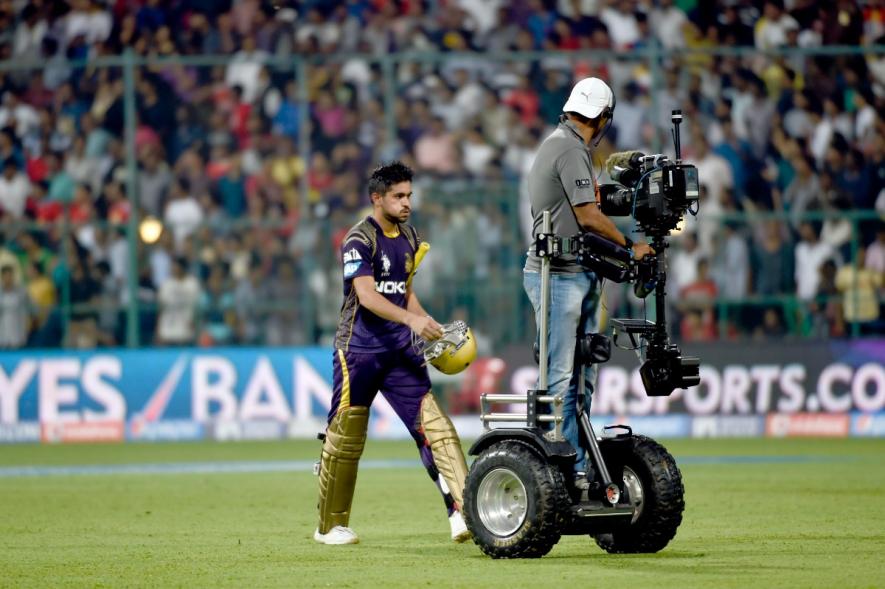
This makes us wonder why there was an issue in the first place. With the ICC elections on cards, and a biggie from India likely to be the frontrunner in the fray from Asia, electoral politics could be a factor.
Then comes the biggest factor of them all as far as money is concerned: The Indian Premier League.
It is evident that the BCCI wants the 2020 season of the IPL to be staged (doesn't matter if it is behind closed doors or in Timbuktu), and the reasonable, or rather practical window would be the one that is currently occupied by the World Cup. The Indian board, shortsighted as ever, can’t look beyond its own interests. The ICC, spineless as ever, is caught between its own mega tournament and the big spectacle that makes sense money wise for all stakeholders involved.
Also Read | Chronicle of a Merger Foretold: The Swift Death of the Legacy of Mohun Bagan
It would be ironic if the T20 World Cup gets muscled out by the IPL in this rat race. It was, after all, the inaugural edition of the World T20 that saw MS Dhoni get crowned as Captain Cool. It featured an Indian victory over Pakistan for the trophy, and ensured the Indian fan took a big liking to what was, till then, a weird and unwanted format — Twenty20. The IPL was perhaps present only as a skeletal idea in the upper echelons of the BCCI prior to that. That too after it was shown by Subhash Chandra and Zee that a T20 league has the potential to revolutionise cricket as a spectator spectacle. No one in the board, barring perhaps Lalit Modi, had any inkling that this format is going to make the BCCI rich and powerful many times over.
Fast forward 12 years, the IPL, from nonexistence, has become so big that it is threatening to gulp down the tournament that birthed it. The BCCI seems to be giving out signals that it hardly cares whether the global tournament is staged or not. Of course, if this year’s World Cup gets pushed to 2021, there would be the small matter of a clash between the 2021 edition to be staged in India. The one with the tax issue, you see. The tax conflict suddenly seems to be not about taxes.
Needless to say, a postponed World Cup will make a huge dent on the cricket kitty of the smaller nations. In fact, this would drastically impact Australia too, one of the big boys of the sport. But BCCI will throw them a bone: a tour, a financially and logistically more lucrative treat for the Aussies than an iffy World Cup played in the shadow of the coronavirus.
The BCCI, however, fail to also realise that in this blinded rush down a selfish avenue, they are also setting into motion something that would choke the global game to the verge of near lifelessness if not complete death. How different is the Indian Board’s action from what the Delhi government proposed last week — Covid-19 healthcare for Delhiites alone?
Recently, a friend and I were in conversation about the economic hit the game would take if the World Cup is shelved. The chat hit upon the concept of Pareto Optimality, named after Italian engineer and economist Vilfredo Pareto. The concept does not exactly provide a framework for social parity but lays down scope for a bare minimum of ethics a capitalist entity could display while chasing profit. Paraphrasing the economic concept, a move is not Pareto Optimal if there is no scope to make improvements to at least one participant's well-being without reducing any other participant's well-being.
It seems that BCCI has never believed in Pareto Optimality, ever since it became a superpower in the game. And its approach, especially during these uncertain times, could give cricket a body blow it might never recover from. The consequence from their actions now will determine the future of the game. All that clout and money will come to nothing if there is no global game to run at all.
Of course, the IPL might still survive but one can’t possibly imagine a cricketing world that revolves around the franchise circus. Besides, we also should not forget that there is relevance to the IPL is only because it is juxtaposed against the tours and performances of the national team in bilateral series and ICC tournaments.
Lest we have forgotten, the biggest talking point in Indian cricket till coronavirus took over was how the IPL would be used to prime the players for the World Cup later this year. At present, it is either the IPL or the World Cup. Let us hope for cricket’s sake that Pareto Optimality prevails and the more morally and ethically correct course is taken.
Click here for more Outside Edge cricket columns
Read more sports stories from Newsclick
Get the latest reports & analysis with people's perspective on Protests, movements & deep analytical videos, discussions of the current affairs in your Telegram app. Subscribe to NewsClick's Telegram channel & get Real-Time updates on stories, as they get published on our website.









